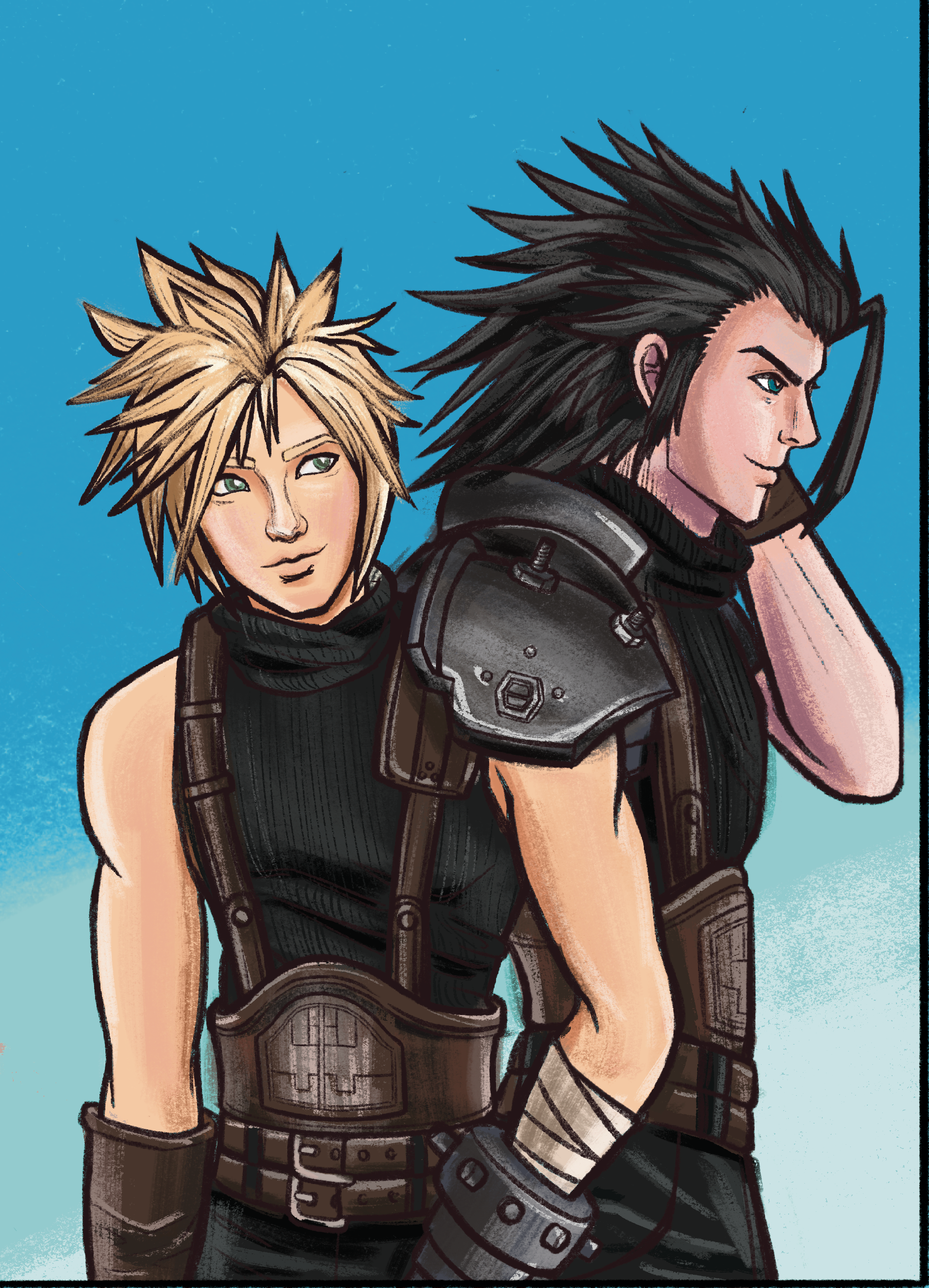
Growing up, I didn’t play many video games. Most of the games that I know of were through my brother, which meant that much of my game knowledge consisted of the various iterations of “Madden NFL” and “NBA 2K.” Very recently, I started playing console games, thanks to all the hype (and fan edits) that I would see for characters like Leon Kennedy and Cloud Strife, from the “Resident Evil 4” remake and the “Final Fantasy VII” remake respectively. While the story for these games are absolutely incredible, the main thing that made me want to play the games were the visuals, despite not knowing anything about the franchises previously (Resident Evil and Final Fantasy please don’t come after me — I’ve seen the light and would honestly say that playing the “Resident Evil 2” remake and “Final Fantasy VII” remake have totally changed my life).
When it comes to talking about what makes a video game “good,” especially in 2024, there is usually a lot of talk about how the graphics look and how pretty the game is. Some recent examples that come to mind are the horror game “The Quarry” and the action game “Cyberpunk 2077.” Both of these games received tons of praise upon release, with much of it directed towards the graphics. They were incredibly detailed and heavily leaned into the realm of being hyper-realistic, so much so that scenes in the game tended to look like movie shots, instead of a video game. Which isn’t necessarily a bad thing, but once games start to look the same, with all of them having this incredibly realistic sheen to them, it can get quite tiring to see repeatedly when you are on the hunt for new games to play, especially when the plots don’t seem to hold up to the quality of graphics.
Recently, I was able to fulfill a childhood dream by buying a PSP, which got me thinking about the other games that might not be so lucky enough to have breathtaking visuals to back up an equally good story. It can be easy to immediately write off a game as being lackluster at first glance if you feel as though the graphics aren’t that impressive, especially if these games are older. While there are still some games that are loved by the masses despite their dated graphics, there are others that don’t get that same amount of love or respect. Since the PSP is a decade-old console, many of the games that I’ve been playing on it are just as old. It would be unfair to say that the graphics for some of these games are downright terrible, because that is simply not true. However, these games having less reliance on graphics leads to a larger emphasis on story and gameplay, and an ability to set themselves apart from other games.
A game I’ve started playing recently is “Patapon,” released in 2008 and developed by Pyramid and Japan Studio. At its core, it’s your standard rhythm game with a twist — in this game, you’re a god! You act as deity to a tribe of anthropomorphic eyeballs, who can be commanded to do things like move, attack, and defend through a sequence of beats, which also gives the game a strategic element, since you are continuously fighting against enemies with the power of drum beats. Something unique about the game was the fact that the characters you control throughout the game, called Patapons, chant in response to the beat that is being played, creating this fun back and forth between the two that is very charming. In terms of the visuals, the design of both “Patapon” — the game — and the Patapon tribe themselves is very simple. It’s something that gives the game a lot of its own personality, and establishes its own visual style, in contrast to the video games of today that tend to have similar graphic styles.
“Shin Megami Tensei: Persona” is the first installment in the “Persona” game series, developed by Atlus Studios and released in 1996. Recent games in this series are known for being incredibly story-based, with there being hours of story before reaching any conflict. However, as I discovered while playing this game, the series didn’t start out this way. The main story revolves around a group of high schoolers who gain the ability to summon a persona — a physical manifestation of a character’s psyche and subconscious to be used in combat — who are tasked with defending their town from demons. As someone who tends to play primarily story-based games, I found “Shin Megami Tensei: Persona” to be an incredibly fun change of pace. Most of the combat consisted of “dungeon crawls” where you are roaming through the world and have an enemy spawn out of nowhere, and start a turn-based fight between a demon and your character’s persona. This isn’t the type of game combat I was used to, but I still found myself enjoying it nonetheless. Even though the game is combat-oriented, I found the story that revolved around the gameplay to be incredibly impressive. What the game lacks in overly stylized graphics is completely overshadowed by the plot, which break off into two separate paths depending on the choices you make early on in the game. Both paths of the game are extremely intricate and heavily involve philosophical themes and the law vs. chaos dichotomy, something I had never really seen in the video games that I had played up until this point. I enjoyed the fact that “Shin Megami Tensei: Persona” connected certain concepts like that into the gameplay.
I had recently started playing the “Final Fantasy VII” remake due to the influx of praise I had seen for the visual elements of the game. After playing the remake I decided to get into the original game too. It’s visually different from the remake, but is still able to capture a player’s attention through the story all the same, which is something I greatly admire and why “Final Fantasy VII” is such an iconic game to this day. I am thankful to have played the “Final Fantasy VII” remake because it opened my eyes to a lot of great older games that I wouldn’t have known about otherwise, simply because they don’t fit into the modern expectation for gaming graphics.
Although it is really impressive to see just how far the gaming industry has come in recent years, there is still something so charming about playing retro games that I will always appreciate. Which is why I urge you to play older games regardless of how they look and see the potential that these games have, and get completely swept away by some of the wonderful gaming experiences that these retro games have to offer.

Comments